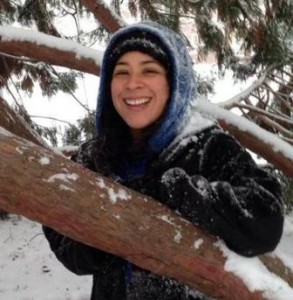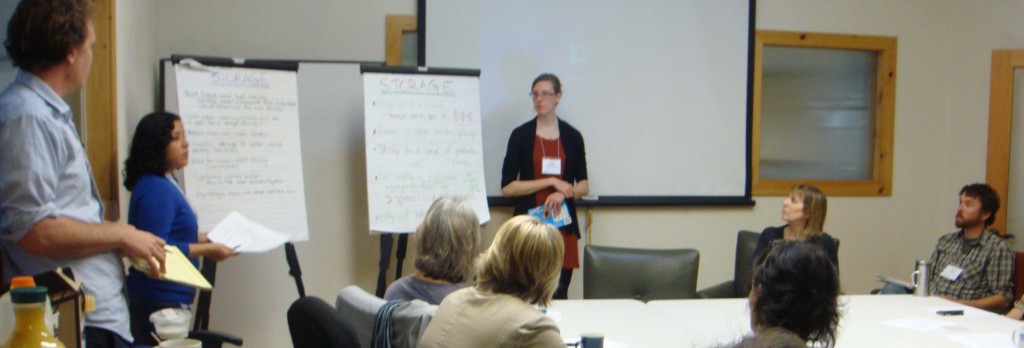My Community Planning Workshop (CPW) team is working with the City of Eugene Planning Department and the Lane County Economic Development Division to determine the need for a year-round regional public market and food hub in Lane County. We will be conducting a market analysis to determine the region’s potential to host a year-round public market.
For our project, we will conduct a lot of research about local food in Lane County. So far, the most interesting aspect has been our interviews with our Technical Resource Group (TRG) and other key peopled involved with local food. We invited people involved in local food efforts to be a part of our Technical Resource Group to help us process and understand market research data and survey data. Our data will identify and analyze trade areas for the potential public market or food hub. Trade areas represent potential consumers in an area. Members of our group include a farmer, food producers, a distributor, a public health representative, representatives of nonprofit organizations, and restaurant and retailer representatives. The interviews have allowed us to draw on their local food background and identify what is happening in Lane County around local food.
The interviews have been a great learning experience because I knew very little about local food when we started the project. The most interesting thing I have learned is that increasing local food consumption would provide a tremendous boost to Lane County’s economy. Increasing local food consumption would provide new jobs and keep millions of dollars in Lane County.
Throughout the interviews, I have also learned that small farmers face several challenges to get their products in stores or to institutions. However, it has been promising to hear that several organizations make an effort to help small farmers overcome barriers. One of these organizations is the Willamette Farm and Food Coalition (WFFC). WFFC runs an online farmers’ market and has started a campaign (Lane County Food Makes Dollars and Sense) to increase consumer demand for local food. Increasing local food purchases by one percent would result in $11.7 million staying in Lane County. I have also learned how some school districts are making a conscious effort to purchase local food for their school lunches and other catered events. Despite all the challenges local producers face, it is encouraging to see how local organizations and institutions are getting behind the local food movement. For instance, our interviewees have noted that several restaurants are making a strong effort to serve more local food. Also, our interviewees have said that they have noticed consumers become more interested in purchasing local food, which is really promising because Lane County would benefit tremendously from increased local food consumption.
 About the Author: Evelyn Perdomo is a first year Community and Regional Planning Graduate Student at the University of Oregon. She is originally from Daly City, CA. Her professional experience includes working as a Project Assistant for an affordable housing developer in California.
About the Author: Evelyn Perdomo is a first year Community and Regional Planning Graduate Student at the University of Oregon. She is originally from Daly City, CA. Her professional experience includes working as a Project Assistant for an affordable housing developer in California.



